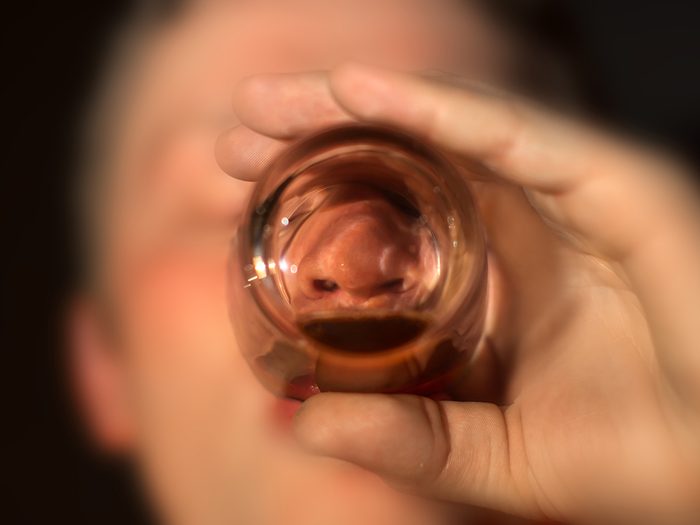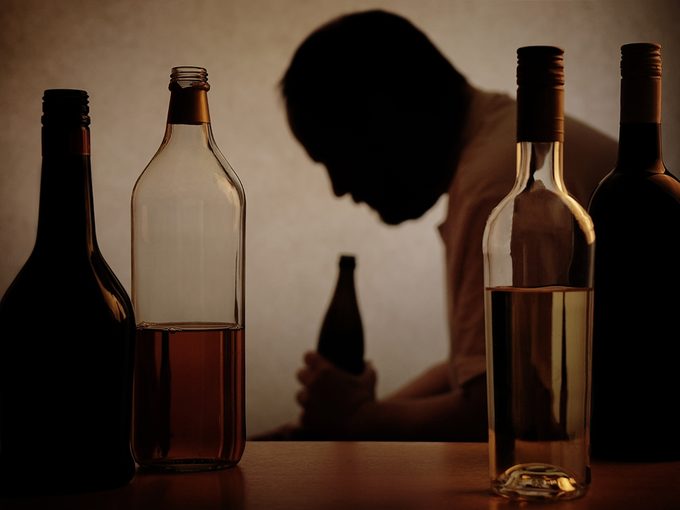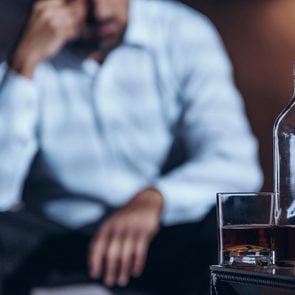6 Warning Signs of Binge Drinking

Dangerous drinking is on the rise with more than 15 per cent of Canadians regularly bingeing on booze. Are you or someone you love at risk? Here are the red flags to watch for.
Rates of binge drinking are rising so steadily that the authors of a comprehensive 2017 study called it a public-health crisis. Around the world, women are binge drinking more, and more heavily. One study, published in Alcoholism, found that binge drinking among U.S. women over 60 is increasing by 3.7 per cent every year. Another found that the number of Canadian women who identified as binge drinkers doubled from 1996 to 2013. In Canada, affluent white people are imbibing in greater quantities, as are people living in rural areas.
Multiple factors contribute to the increase in binge drinking. Some doctors cite the stresses that come with a dismal economic and political climate, a culture of overwork, a rise in mental health issues and growing social isolation. And drinking is arguably the world’s most socially acceptable vice—a customary indulgence at big celebrations, restaurant dinners or just a regular night at home.
As drinking becomes not only a way to make merry but a way to cope with stress, it has been increasingly linked to parenthood. Terms like “grown-up grape juice,” “mommy drinking” and “using wine to cope with the whine” glibly offer parents permission to soothe the burn of sleep deprivation and anxiety with alcohol.
While those factors may explain an uptick in the number of people reaching for that first drink, it’s brain circuitry that’s likely responsible for bingeing behaviours. A drink puts stress on cells in the brain’s extended amygdala, and those cells release a stress hormone called corticotropin, which fires up the brain’s ventral-tegmental-area neurons.
In other words, the brain’s reward centre lights up and relays to its owner that taking another drink is a great idea because the more you consume, the greater the reward. And because alcohol overstimulates certain parts of the brain, you’re not as likely to consider its impact or to focus on anything other than the immediate task at hand: drinking. Your brain circuitry encourages you to crack another beer, even if a sober you would know that it’s time to stop.

Warning Signs of Binge Drinking
If you find yourself regularly drinking more than you intended, consider whether you’re in control of your habits.
You can’t remember things
During a night of heavy drinking, a brain messenger called glutamate is disrupted. Researchers think this is why excessive drinking suppresses our memories.
You can’t cut back
Your commitments to stay sober for a set period of time or to lessen your consumption don’t work.
Your friends and family have expressed concern
If those around you have suggested that you have a problem with binge drinking, consult your doctor.
Your drinking is affecting your job, relationships or finances
Examine the stresses in your life and consider whether alcohol is a common factor.
You’re causing harm to the people around you
If the consequences of your drinking are spilling over into the lives of your loved ones, it’s time to take serious stock of your alcohol consumption.
Now that you know the warning signs of binge drinking, read up on the dangers of binge drinking.






